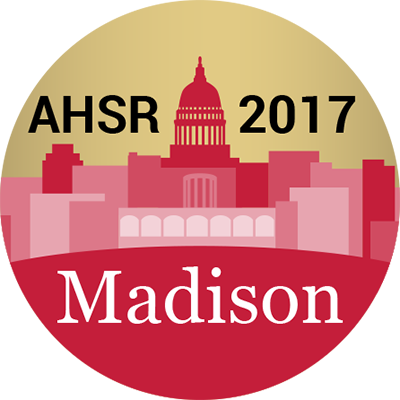1. Social Networks Analysis and Health
- Wednesday, 10/18, 12:00-1:30 PM
Marlon Mundt, PhD
Assistant Professor, University of Wisconsin Department of Family Medicine and Community Health
Social networks, defined as “the patterns of friendship, advice, communication, and support that exist among members of a system,” play a central role in the transmission of health-related information and behaviors. In addition, networks of communication and coordination within health care teams contribute to quality of care and patient outcomes. This workshop enables participants to understand how social network data are collected and processed; how to calculate and interpret network measures; and how to apply statistical modeling of social network effects on health behaviors and patient outcomes.
The workshop will begin with an overview of basic concepts and statistical models of network formation. We will then introduce network measures and demonstrate how these measures are linked to health behaviors. The workshop will survey social network studies related to alcohol and other drug use (AOD). The course will also look at the social networks of health organizations in relation to patient outcomes. Participants will discuss ways in which networks can be leveraged to modify individual or team behaviors and to improve health outcomes.
The workshop covers the following topics:
- History of network science; network terminology and types;
- Social network visualization and data metrics;
- Social networks and AOD use;
- Social networks and patient outcomes in primary care
Time: 90 minutes
2. Using Qualitative Methods to Study Behavioral Health Interventions and Services in Diverse Settings
- Wednesday, 10/18, 1:45-3:45 PM
Shannon Gwin Mitchell, PhD
Senior Research Scientist, Friends Research Institute
Cathleen E. Willging, PhD
Senior Research Scientist, Pacific Institute for Research and Evaluation, Behavioral Health Research Center of the Southwest, Albuquerque, NM
Alison B. Hamilton, PhD, MPH
Research Health Scientist and Director, Qualitative Methods Group, VA Health Services Research & Development Center for the Study of Healthcare Innovation, Implementation & Policy, VA Greater Los Angeles Healthcare System; Associate Research Anthropologist, UCLA Department of Psychiatry and Biobehavioral Sciences
This two-hour workshop will provide an overview of the use of qualitative research methods in behavioral health services research (HSR). Specifically, we will discuss study design options, formulation of HSR specific aims, and methodologic decision-making in the context of project resources (e.g., time, expertise, funding). Presenters will describe examples of qualitative behavioral HSR in diverse settings such as the Veterans Administration, clinical and community settings, and criminal justice programs. Participants are encouraged to bring their qualitative research questions and concerns for group discussion and problem-solving.
Time: 2 hours
3. NIDA/NIAAA Pre-Conference Workshop on Grant Writing for New Investigators
- Wednesday, 10/18, 4:00-5:15 PM
Dionne Jones, PhD
Acting Chief, Services Research Branch, NIDA
Lori Ducharme, PhD
Program Director for Health Services Research, NIAAA
Program staff from NIDA and NIAAA will share tips on writing grants in addiction health services research for submission to the NIH. This will include identifying the grant mechanism that is right for you, knowing your audience, telling your story and emphasizing its significance to the scientific field. Some insights into the review and funding processes will be shared, and current program priorities will also be discussed. This session is designed for new investigators, but all are welcome.
Time: 90 minutes

